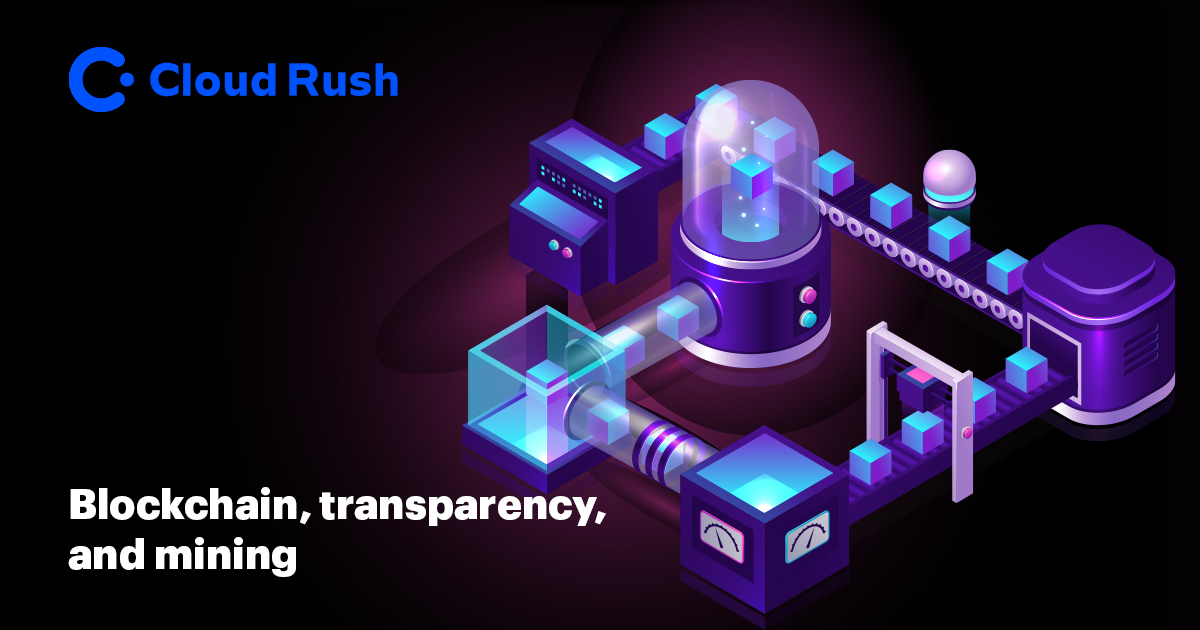Let’s talk about blockchain and transparency

What is blockchain?
Blockchain is the backbone of digital currency Blockchain is a continuous chain of blocks that form a type of public distributed ledger which is written using open-source software. It is a growing database of time-stamped transactions that cannot be altered. Each new transaction is verified by a network of independent computers (called “nodes”) and is added as a “block” to the chain.
What is a block?
A block reflects who, to whom, and when certain assets were transferred. All blocks are sequentially connected in one consecutive chain. Only new blocks, which are timestamped, can be added to the chain. The sequential blocks cannot be changed or deleted as it would break the chain. Blocks cannot be changed so it is always possible to reconstruct a transaction’s history and find the public address of the current owner.
Other blockchain features:
- Blockchains enable asset ownership to be updated via a network of computers without the involvement of a third party,
- If one or more networked computers fail, the information in a blockchain will not be lost.
- Transaction information cannot be hidden, changed, or falsified.
- A buyer and seller in a blockchain network must confirm their transaction with a unique digital code, aka a cryptographic key. It is almost impossible to guess the characters of a cryptographic key.
How is blockchain transparent?
Every blockchain user is assigned a public address that in no way identifies them. Public addresses are completely open, so anyone can view the holdings and transactions that are associated with the address.
Blockchains protect the identity of all users by using strong and uncrackable cryptography. This means that individual users cannot be linked to their public blockchain addresses.
This is an unprecedented level of transparency in the financial world. Before blockchain, nothing like this had ever existed.
How does digital currency and blockchain work?
Blockchain forms the basis for digital currencies by spreading its operations across a network of computers. Blockchain allows digital currencies to operate without a central authority, which not only reduces risk but also eliminates many processing and transaction fees.
Digital currency miners compete to create the next block in a blockchain. The winning miners create new blocks and are rewarded with new coins/tokens that can be sold or traded based on market values.
Bottom Line
Blockchain transactions enable anyone with a computer connected to the internet to function within a fully automated trading platform with secure, decentralized data storage that is not controlled or manipulated by a central entity.
Ready to join the digital currency industry?
Cloud Rush mines for Filecoin because we believe that creating an actual product, digital storage, will help make a difference in today’s world. The new data storage created by Cloud Rush miners makes data storage safer, data easier to retrieve, and the decentralized network harder to censor.
Mining new Filecoin is usually much less expensive than purchasing it at the market price.
For example, a 96T (terabyte) machine plan from Cloud Rush has an initial out-of-pocket cost1 of only $16,889. (A token pledge [priced at 5.1FIL/T as of 10/28/21] is also required at the commencement of mining; please contact Cloud Rush for details.) The estimated mining cost-per-token is $19.50 or less. On October 28, 2021, Filecoin tokens were priced at $58.00. This sounds like a pretty good deal.
Another reason to mine Filecoin
Filecoin mining machines use standard hard-drive storage and require 60 to 70% less energy than standard mining equipment. Filecoin is built to improve computing for the long term.
Is now a good time to begin mining for Filecoin?
Absolutely! For more information on, please contact Cloud Rush, 626-779-2116 or ConsultCR@CloudRush.io for a FREE digital currency consultation.
1 Out of pocket costs are defined as machine buy-in price and the first year’s hosting fee. The remainder of the term’s hosting fees will be due yearly upon the anniversary date of the contract.
Disclaimer: This blog is provided for informational purposes only. It is not offered or intended to be used as legal, tax, investment, financial, or other advice.
